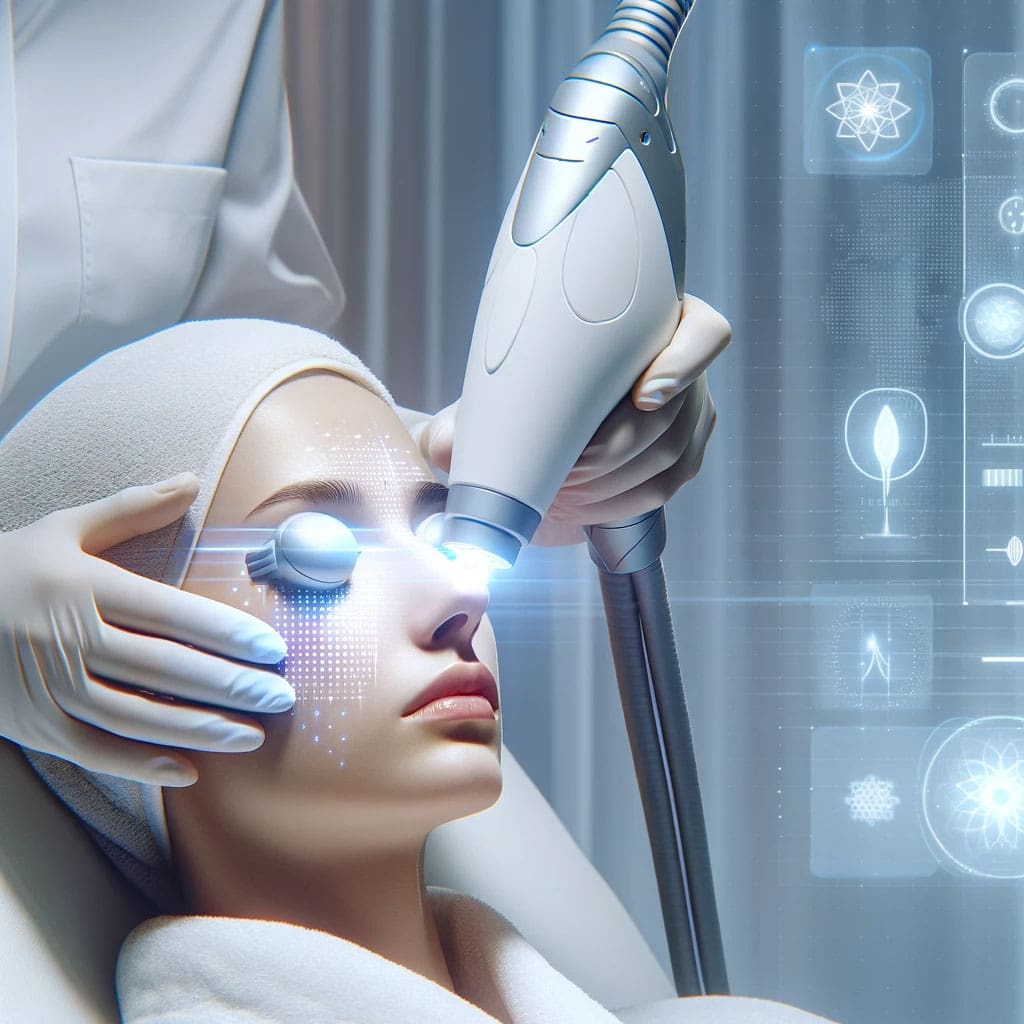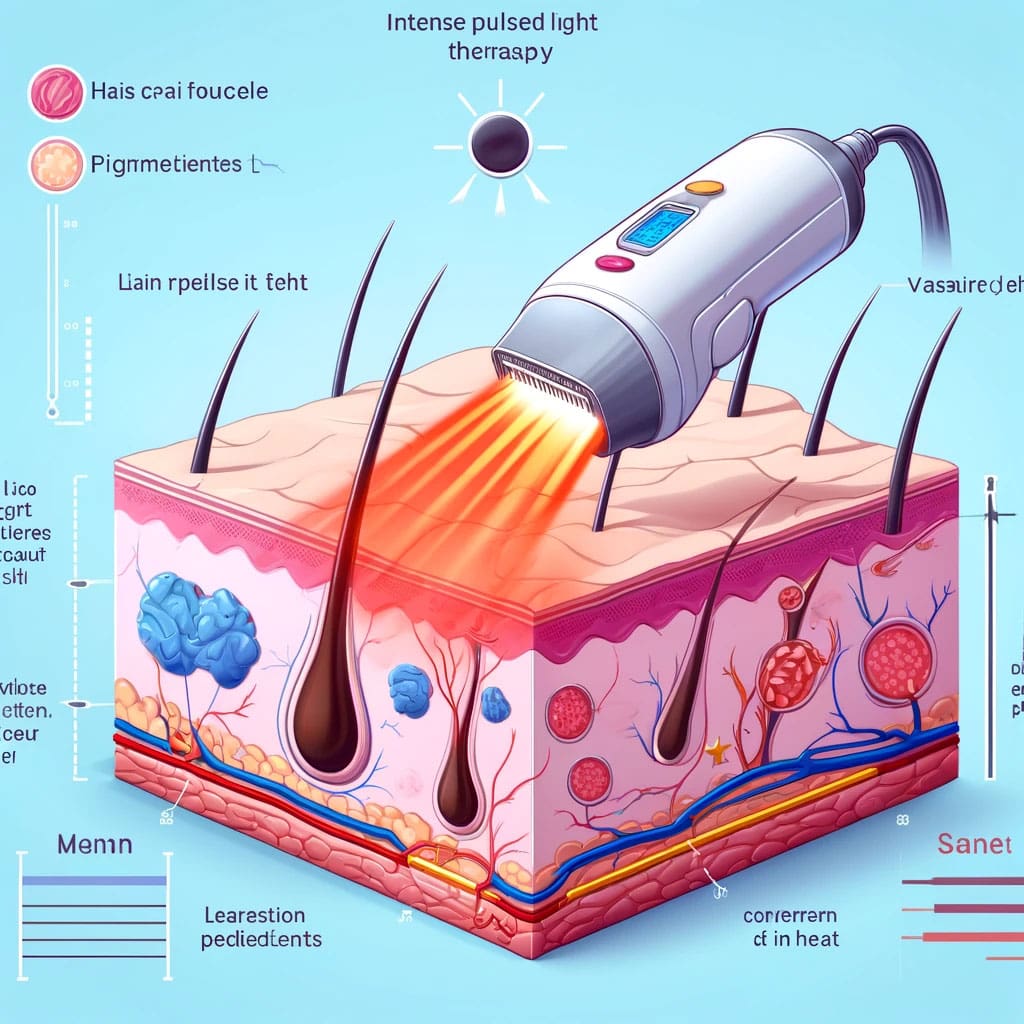
Introduction
Intense Pulsed Light (IPL) laser treatments are widely used for various skin concerns, offering a non-invasive solution with minimal downtime. Understanding the science behind IPL technology can help you appreciate how it effectively targets and treats different skin issues. This article explores the mechanisms of IPL laser treatments and the benefits they provide for skin health.
What is IPL Laser Treatment?
Definition and Overview
IPL laser treatment, also known as photorejuvenation, uses broad-spectrum light to address a variety of skin imperfections. Unlike traditional lasers, which use a single wavelength of light, IPL emits multiple wavelengths, making it versatile for treating multiple skin issues.

Common Uses of IPL Laser Treatment
- Hair Removal: Effective for long-term reduction of unwanted hair.
- Skin Rejuvenation: Reduces sun damage, age spots, and freckles.
- Acne Treatment: Minimizes acne and prevents future breakouts.
- Vascular Lesions: Treats broken capillaries, spider veins, and rosacea.
How Does IPL Work?
Mechanism of Action
IPL devices emit light pulses that penetrate the skin layers without damaging the surface. The broad-spectrum light is absorbed by targeted cells, which convert it into heat. This heat energy destroys unwanted cells, such as hair follicles, pigmented cells, or vascular lesions, promoting clearer and healthier skin.

Light Absorption and Conversion to Heat
The science behind IPL involves selective photothermolysis, where the light energy is selectively absorbed by specific targets in the skin. These targets can include melanin (in pigmented cells), hemoglobin (in blood vessels), and water (in the skin). Once absorbed, the light energy is converted into heat, effectively destroying the unwanted cells while sparing the surrounding healthy tissue.
Benefits of IPL Laser Treatments
1. Versatile Treatment for Multiple Skin Issues
IPL therapy is versatile, capable of treating a variety of skin concerns such as pigmentation, vascular lesions, and unwanted hair, making it a popular choice for comprehensive skin rejuvenation.
2. Minimal Downtime and Non-Invasive
One of the major benefits of IPL treatments is the minimal downtime. Patients can typically return to their daily activities immediately after the procedure, making it a convenient option for those with busy schedules.
3. Stimulates Collagen Production
IPL treatments stimulate collagen production, which helps to improve skin texture, reduce fine lines and wrinkles, and enhance overall skin elasticity.
Safety and Side Effects
Is IPL Laser Treatment Safe?
When performed by a qualified professional, IPL treatments are generally safe. However, some temporary side effects may occur, such as redness, swelling, and minor discomfort. It is essential to follow post-treatment care instructions to minimize these effects.
Potential Risks
While IPL is safe for most skin types, individuals with certain skin conditions or very dark skin tones should consult a professional to determine if IPL is suitable for them. Proper eye protection is also necessary during the treatment to avoid eye damage.
Conclusion
Understanding the science behind IPL laser treatments highlights how this technology effectively targets various skin concerns. From hair removal to skin rejuvenation, IPL offers a versatile, non-invasive solution with minimal downtime. Consult with a licensed professional to determine if IPL is the right treatment for your skin needs.